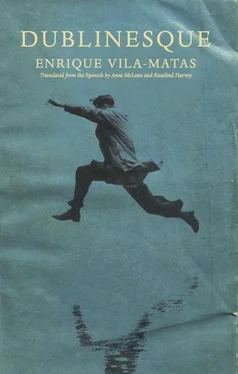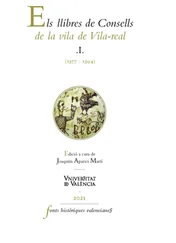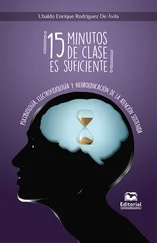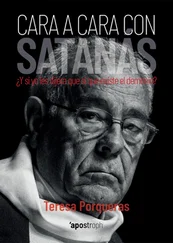It’s clear his mind is already starting to wake up. The proof is that he’s now gripped by a certain amount of enthusiasm. But he realizes that his euphoria must coexist with the awkward memory of the incident last night, which now he sees almost as a dream, or the start of a good story, although he won’t tell his friends about it later as if it were a story, or as if he were a writer. It’s possible the stranger was someone who thought he was still staying in room 527. Maybe it was a young man who stayed in this room with his lover. Perhaps that morning he had left the room very early and the woman, fed up with him and not knowing when he’d be back, decided to break things off, paid for the room and left his suitcase up there, so that, when he returned, the fool would realize he’d been abandoned to his fate.
What would have happened if Riba had opened the door a few hours ago? This guy was hoping to find his lover there. Maybe the stranger would have got the biggest shock himself. And what’s clear is that, if Riba had opened the door to him, a story would have been set in motion. A writer would no doubt have found the beginning of a good story there, thinks Riba. . His head nods gently. It seems he’s woken up too early and is going to fall back asleep. But he immediately recovers from this false return to slumber.
Shortly afterward, precisely when he’s most awake, he falls into a stupor of words and questions with very little meaning. He thinks, for example, about the color of Ireland and asks himself if one day this predominant color, green, will go away. What does this question mean? Isn’t it an idiotic question? He looks over at the TV and watches how, after scanning the horizon to look for the sun, Dracula hurls a curse at the sky. From the movement of his lips Riba thinks he’s understood what he said, but it doesn’t seem very likely. He thinks the vampire said:
“Restless as a child’s bottom.”
How strange, he thinks. Would the young man who came to look for his red suitcase and said he was called New York have spoken like that? His mind becomes somewhat confused again. And how strange it all is, he thinks. He pulls the sheets over his head, as if he were starting to feel scared again. If he could choose his future, he’d go on sleeping forever. If anyone knocked at the door now, he’d think it was the genius he’s been looking for all his life.
He remembers a day when, with excessive care, Celia read the label on a bottle of mineral water at home, turning it around slowly, without stopping. And now he does something similar in his room. He picks up a bottle of crystal-clear Irish spring water and repeats those gestures of Celia’s.
Loneliness. Celia over there in Barcelona. His friends, probably sleeping off their hangover. His parents on the day of their sixty-first wedding anniversary, but it’s so early in the day he can’t even call them.
Alone, dreadfully alone. Although, all things considered, with each moment that passes, the feeling of loneliness grows less. Because this strange background murmur doesn’t cease, the sensation of noticing the almost palpable presence of someone at his side, stalking him. Damn it, he thinks, I’m going to end up getting used to this company. He tries to incorporate some humor into the moment, but doesn’t really know how. He thinks that, if it’s anyone, this ghost can only be the creator of his days, or the spirit — the lost genius — of his childhood. Or someone who’s using him as a guinea pig for his experiments. Or Uncle David himself, although he doesn’t think so. Or the masterly author he always looked for and never found. Or no one. In any of these cases, it must be someone who, as Joyce would say, has faded into impalpability through death, through absence, through a change of manners. Whoever it is, admitting the unmissable disparity — this someone or no one — must be like that famous reality, toward which one can get closer and closer, but never close enough; because reality knows how to slip away behind an infinite series, of footsteps, levels of perception, false soundings. And in the long run, reality turns out to be inextinguishable, unreachable. One can find out more and more about it, but not everything. Even so, it’s advisable to try to find out a little more, because in certain investigations surprises do occasionally occur.
Breakfast is served in a room adjacent to the lobby, an ultra-modern black and white space, a tiresome, painfully hip locale. He’s never seen such a dark, lowly-lit place for having breakfast: it looks like Dublin at night, but very late at night and before it was built, when this place too was one of the darkest on earth. Because, for starters, you can’t see a thing. And when he eventually gets used to the darkness, he starts to make out a series of brusque businessmen, each eating breakfast alone, their expressions stern and unsmiling, their briefcases on the floor. All he can see around him are sullen businessmen dressed in stiff suits. Those are “the Morgans,” he thinks. They don’t interact with each other, although one would hope that a certain enthusiasm for the things of this world would be visible on their faces. The Morgans seem to live in a migrainey, morbid, unsociable sort of enthusiasm. In order to be on a par with them, Riba asks for coffee in the same reserved, standoffish tone they use. A few of them throw him glances of complete indifference and seem to frown.
He amuses himself by imagining that one of the Morgans is eating cooked kidneys for breakfast, as Bloom does at the start of Ulysses . It comforts him to think that, when breakfast is over, it’ll be a more appropriate time to call his parents. One of the Morgans is staring at him so hard it makes him uncomfortable. It makes him think of a similarly sullen man he met in the Roverini on Madison Avenue, on his second trip to New York. Like that one, this man seems strangely familiar; it’s as if he knew him from a long time ago and knew everything about him, and yet as if at the same time the man, who looks quite Italian, were really a genuine and total stranger; more than that, it’s as if he were the person he knew least of all the millions of strangers in the world.
Maybe he’s spying on him. Or it could be that Walter man. Or a friend Nietzky recruited last night, who’ll come up to him any minute to introduce himself and say something like how he was the first to buy all the books Riba published at his publishing house. So you are the famous first person , Riba would say then if this guy came over to say something like that. But the supposed Italian doesn’t come over, he sits motionless, simply staring at him, until he gets bored and chooses instead to bury himself in his copy of the Irish Times , which they hand out on your way into the dining room. Riba wonders what would happen now if he went over to the man and told him that he sometimes thinks he recognizes the lost spirit of his childhood in strangers. The other man would either think he was a madman or was trying to chat him up. He’d never understand the spiritual nuances, this manoeuvre where he was only trying to connect as closely as possible to that little boy on a long-ago Barcelona patio, wanting to reconcile himself with his childhood spirit, with the first person he knew so fleetingly and who separated from him so early on. But the surly Morgans aren’t in the mood for any kind of subtleties.
Another one, the one sitting at an adjacent table very involved in some papers covered in figures and mathematical equations, looks at Riba now with absurd suspicion, as if he thought he wanted to copy his notes. This is all Riba needs, for someone to think he’s nostalgic for the world of business or needs to copy other people’s formulas for success.
He looks at the supposed Italian and confirms that the man’s stare of a few seconds ago has given up the ghost. This allows Riba to observe him better. He really reminds Riba of the young Morgan he saw a few months ago in New York’s Roverini. But he soon sees it’s not the same guy, not at all. This one, if possible, looks even more sullen.
Читать дальше












